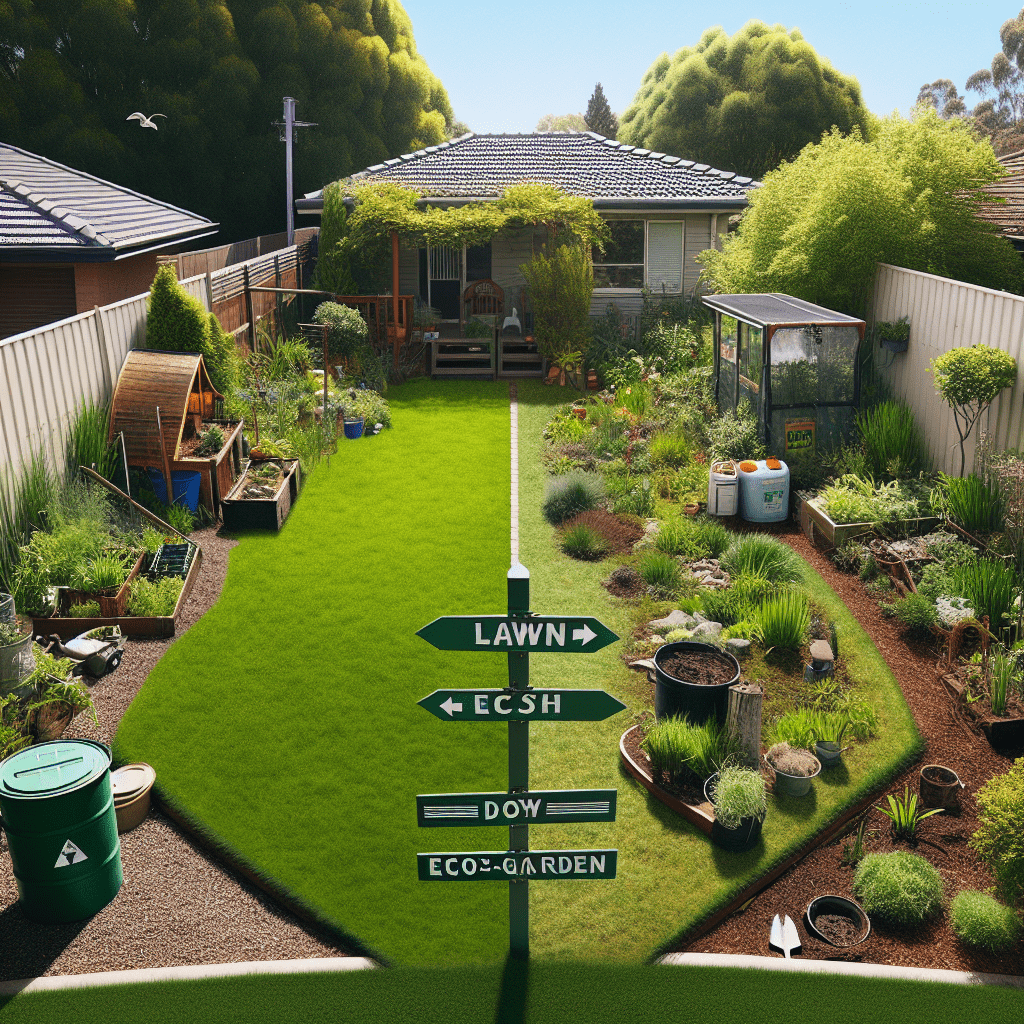From Lawn to Eco-Haven: Tips for Sustainable Landscaping
In today’s world, sustainability is a key factor in every aspect of our lives, including landscaping. Many homeowners are realizing the importance of creating eco-friendly outdoor spaces that not only look beautiful but also contribute to a healthier planet. If you’re looking to transform your traditional lawn into a sustainable eco-haven, here are some tips to get you started.
1. Choose Native Plants
Native plants are adapted to the local climate and soil conditions, making them easier to maintain and more resistant to pests and diseases. They also provide food and shelter for local wildlife, helping to maintain a healthy ecosystem in your yard.
2. Minimize Water Use
Water conservation is a critical aspect of sustainable landscaping. Consider installing a rain barrel to collect rainwater for irrigation, and opt for drought-tolerant plants that require minimal watering. Mulching your garden beds can also help retain moisture in the soil.
3. Compost Organic Waste
Composting is an excellent way to reduce waste and improve soil quality in your garden. By composting your organic kitchen waste, lawn clippings, and leaves, you can create nutrient-rich soil that will help your plants thrive.
4. Avoid Chemicals
Chemical fertilizers, pesticides, and herbicides can have harmful effects on the environment and human health. Instead, opt for organic and natural alternatives to keep your garden healthy without compromising the planet.
5. Create Habitat for Wildlife
Encourage biodiversity in your yard by planting a variety of native plants that attract pollinators, birds, and other wildlife. Consider adding bird feeders, bee hotels, or a small pond to provide food and shelter for local animals.
6. Use Permeable Surfaces
Replacing traditional hardscapes like concrete with permeable materials like gravel or pavers allows rainwater to soak into the ground, reducing runoff and preventing water pollution. Permeable surfaces also help recharge groundwater supplies and reduce urban heat island effects.
7. Embrace Sustainable Lawn Care Practices
Maintaining a healthy lawn without harming the environment is possible with sustainable lawn care practices. Consider mowing your lawn less frequently, leaving grass clippings in place to decompose and nourish the soil, and aerating and overseeding to promote healthy grass growth.
Conclusion
By following these tips for sustainable landscaping, you can create a beautiful and eco-friendly outdoor space that benefits both your family and the planet. From choosing native plants to minimizing water use and avoiding chemicals, every small step you take towards sustainability makes a difference. Transforming your lawn into an eco-haven is not only good for the environment but also for your well-being, as spending time in nature has been proven to reduce stress and improve overall health.
FAQs
Q: Is sustainable landscaping more expensive than traditional landscaping?
A: While the initial cost of sustainable landscaping may be higher due to investing in eco-friendly materials and practices, it can save you money in the long run by reducing water and maintenance costs.
Q: Will native plants attract more pests to my yard?
A: Native plants have evolved alongside local wildlife and are less likely to attract pests than non-native plants. Additionally, a diverse and balanced ecosystem in your yard can help control pest populations naturally.
Q: How can I educate myself about sustainable landscaping practices?
A: There are many resources available online and in books that provide information on sustainable landscaping practices. You can also reach out to local gardening clubs, extension offices, and nurseries for guidance and support.
TIP:
Remember that sustainable landscaping is a journey, not a destination. Start small with a few eco-friendly changes in your outdoor space and gradually incorporate more sustainable practices over time. Every little effort counts towards creating a healthier and more sustainable environment for future generations to enjoy.
#Lawn #EcoHaven #Tips #Sustainable #Landscaping

